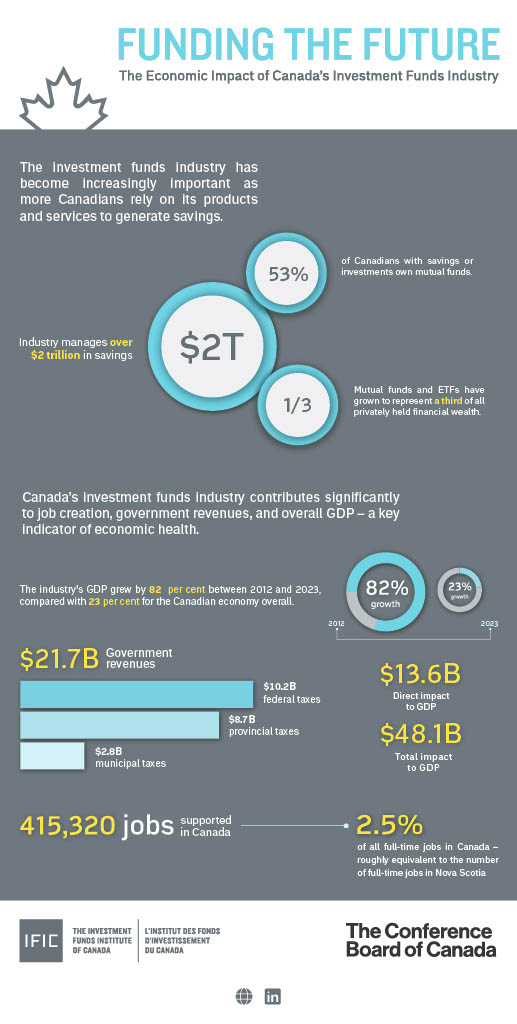New report highlights the benefits the industry brings to individuals and the economy

For wealth professionals, the importance of the companies that provide a wide and varied range of funds is clear, but a new report highlights their overall impact on Canadian individuals and the economy.
The Investment Funds Institute of Canada has released a Conference Board of Canada report that emphasizes the exponential growth of the industry, its critical role in helping Canadians grow their wealth, and the benefits that it brings to the economy.
Over the 2012-2023 period, the Canadian investment funds industry grew by 82%, far exceeding the 23% growth of the economy as a whole, and in 2023 alone it delivered $48.1 billion to the economy, accounting for 2.1% of total GDP, and contributed $21.7 billion in taxes.
Productivity, something that is a challenge for many developed economies including Canada, is another point of note for the industry, with adoption of technology and innovation driving gains. And the industry supported 415,230 full time jobs, roughly the equivalent of all the full time jobs in Nova Scotia and representing 2.5% of all full time jobs nationwide.
Delivering for investors
Meeting the demands of modern investors means offering the products they require, including ETFs and DIY investing; the share of investors with financial advisors fell from 69% in 2020 to 61% in 2024.
Responsible investing is also a growing area for Canadian fund managers and the report highlights how these funds have grown from less than $7 billion a decade ago to more than $56 billion in 2023 with further expansion expected in the coming years.
This response to investor demand helped revenue streams total $42.6 billion in 2023, even as investors paid significantly less in mutual fund fees over the last decade with average mutual fund MER for long-term funds falling to 1.47% in 2023 from 2.06% in 2013, a 29% decrease.
The report, Funding the Future: The Economic Impact of Canada’s Investment Funds Industry, notes that Canadians are relying more on private retirement savings to fund their post-work years.
The share of private retirement income has risen for those aged 65+ from 18% of total retirement income in 1990 to 33% in 2022.
More than half of Canadians own mutual funds and one quarter own ETFs, with these funds representing a third of all privately held financial wealth today, the report shows.
“This research highlights the critical role of the investment funds industry in supporting Canadians, both in terms of personal savings and broader economic growth,” said Andy Mitchell, president and CEO of IFIC. “As Canadians increasingly depend on mutual funds and ETFs to meet their financial goals, it's essential to recognize that this industry also contributes significantly to job creation, government revenues, and overall GDP – a key indicator of economic health.”




